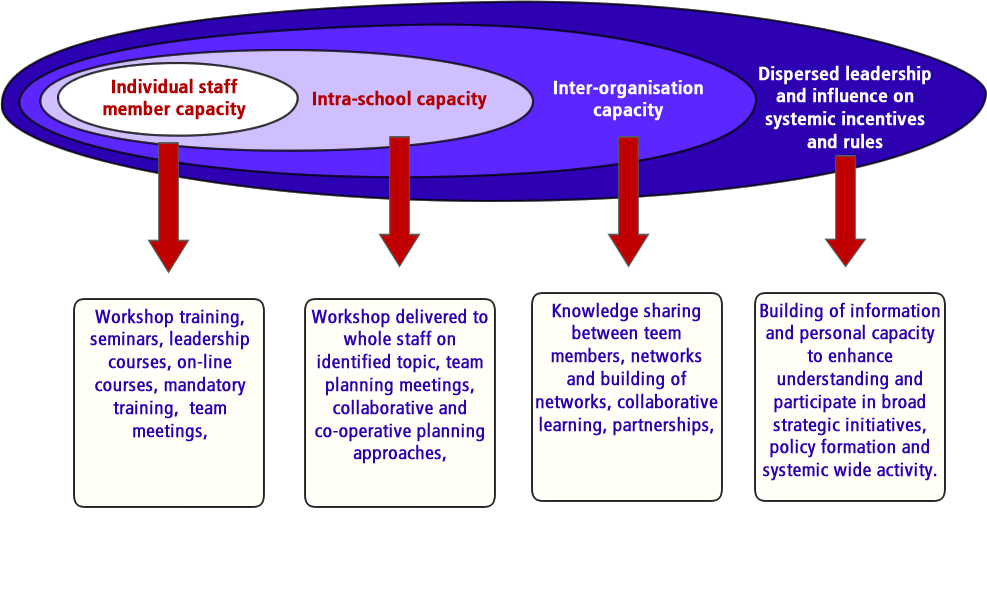Building staff capacity
Rational
Teachers and support staff enter this school with knowledge and skills appropriate to a range of contexts that reflect traditional school and administrative models. These are generally inadequate in the initial phase of working within this unique context of a school of distance education institution.
In addition to this gap of knowledge and skills, there is often the challenge of working in a context that demands strong relationships and professional connections with colleagues, students and their caregivers.
Simply being exposed to a distance education curriculum (i.e. independent learning materials – ILMs, teacher – student synchronous/asynchronous communication, etc.) does not assume that students experience authentic learning. It is the teachers' and tutors' role in the enactment of this curriculum and the development of relationships between teacher and student/tutor that ultimately impacts on the authenticity and retention of learning.
Our school's capacity framework and program challenges both the teaching and support staff of our school to develop and use skills and capabilities in:
- Delivering complex curriculum through e-learning and flexible learning approaches;
- Collecting, analysing and interpreting data to inform delivery and assessment strategies;
- Constructing re-conceptualised assessment and carrying this out within the context of our school; and,
- Building and sustaining partnerships with other stakeholders (e.g. tutors).
This framework underpins our staff developmental and induction activities and the allocation of resources and time. It also influences our school's performance monitoring and individual staff members' annual performance plans.
Defining concepts
'Capacity refers to the ability of an individual, group, organisation or system to deliver intended outcomes, while capacity building refers to improving the ability of the entity to perform.' (Brown et al 20011)
For our work in the context of our school, the following characteristics are inferred:
- Capacity building is a process of change, it is about managing transformations.
- Capacity building is a long-term process, not a once-off intervention (but there can be short-term results)
- Capacity building is an internal (endogenous) process, meaning that change needs to be driven from within an individual and/or organisation to build a self-sustaining model.
- Capacity building involves all stakeholders (across organisations and hierarchy)
- Capacity building measures obstacles, progress and outcomes
- Capacity building goes beyond improving the human resource capacity to encompass the organisational and institutional contexts.
(UNDP 19982)
The following diagram outlines the four levels of our
capacity framework:

Annual program 2020
The capacity framework for our school throughout 2020 is constructed from evidence drawn from:
- 2019 Staff Opinion Survey
- 2019 Induction Programs and review
- 2019 Internal Review of Effectiveness of Professional Development Activities
- Review of teachers' capabilities in IT, distance methodologies and appropriate pedagogies on entry to our school.
The full schedule aligned with our capacity framework may be accessed at our school.
1. Brown L, LaFond A and Macintyre K (2001) Measuring Capacity Building. University of North Carolina
2. United Nations Development Programme (1998) Capacity assessment and development; United Nations Development Programme: http://www.cbd.int/doc/pa/tools/Capacity%20assessment%20and%20development.pdf